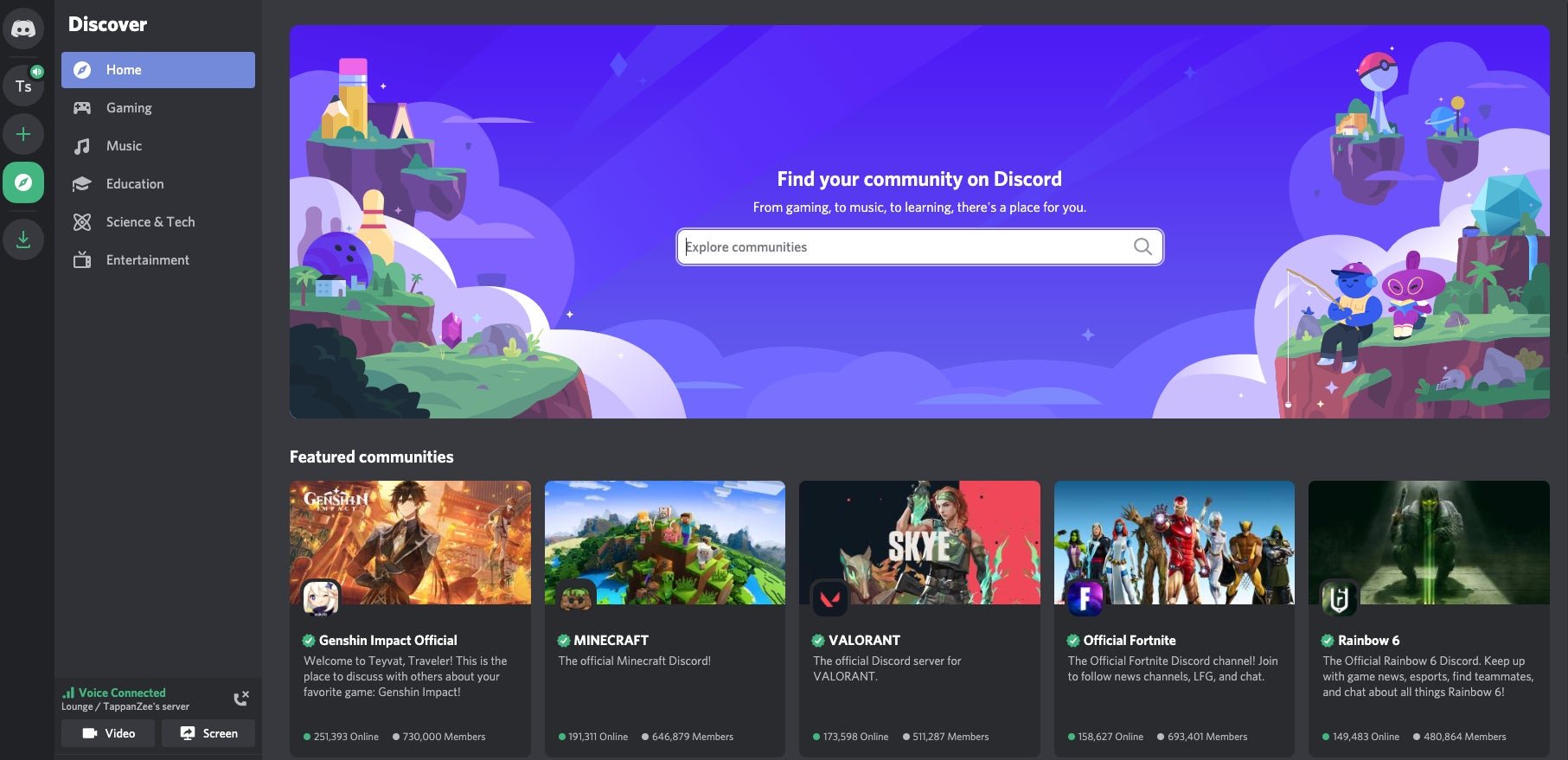Messaging app Discord is the new social life for house-bound teenagers
Earlier this week, my 10-year old daughter asked if I would let her join Discord, an app that combines group messaging with voice and video chats. Yesterday, TechCrunch reported Discord is about to close a funding round that would value the startup at as much as $7 billion.


Earlier this week, my 10-year old daughter asked if I would let her join Discord, an app that combines group messaging with voice and video chats. Yesterday, TechCrunch reported Discord is about to close a funding round that would value the startup at as much as $7 billion.
I don’t think those two events are coincidences.
Discord has surged in popularity this year, doubling its monthly active users to 120 million and with 800,000 downloads a day, according to TechCrunch. Created in 2015 as a platform for Internet gamers, its growth has been fueled first by Fortnite and more recently the mega-hit Among Us, a game where groups of players band together in an outer-space version of Survivor.
But much of its popularity is due to its power to connect communities at a time when so many—particularly those of young people—are isolated from each other. As founder Jason Citron noted in a July blog post, Discord leapt from the gamer world to connecting all sorts of groups, so the company consciously redesigned its interface to be less game-oriented. There are now 13.5 million servers—Discord speak for channels—active every week and it’s the social media app of choice of teens and even preteens, like my daughter (I’m still on the fence about letting her join).
Amid those millions of servers are some nasty ones, and for a while Discord became the preferred venue for members of the alt-right. The 2017 Unite the Right March in Charlottesville, Virginia, was organized on Discord. Misogyny and homophobia were also allowed to fester as its founders took a laissez-faire approach to moderation. That has changed as Discord tries to broaden its appeal. It purged dozens of servers linked to white supremacists, and now 15% of its employees are on a Trust and Safety team dedicated to weeding out bad actors, Forbes reported.
Despite that stain, Discord has raised $379.3 million in venture capital to date, according to Crunchbase, including $100 million in a June funding round which valued the company at $3.5 billion. The new round would double that valuation.
At some point those investors would like to get paid back, and it’s not obvious how that will happen. The app is free to use, but sells a premium product for $100 a year called Nitro that allows users to customize their profiles and gives them better performance. Forbes estimates Nitro will generate about $120 million in revenue this year.
The obvious exit for Discord’s founders would be a sale to an existing tech giant, which could swallow it whole like WhatsApp, Instagram, YouTube, and Skype before it. Tech site Protocol runs through the possible reasons—financial, legal, and political—why that hasn’t happened yet, but as Discord’s millions of users potentially turn into billions, it may be too tempting a prize for Big Tech to pass up.